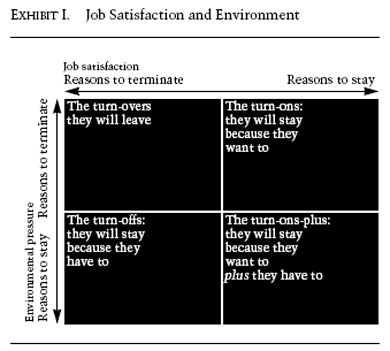Upskill your employees to keep them motivated
In these difficult times where companies are retrenching staff – sometimes in less than savoury ways to cut costs – morale in the workforce is generally low and employees typically feel unmotivated. Some even choose to leave their jobs voluntarily as their company culture took a turn for the worse during the pandemic, showing that employees value their mental health over a toxic job. We spoke to employers and employees to get their views.
Why Employee Retention is Important
Angeline Yap, Managing Director of IDA’SG – a Japanese human resource training company that hones employee skills for luxury brands such as Louis Vuitton and Cartier – says: “An organisation’s success is dependent on employee retention and team morale. It has a lasting impact on the productivity levels, employer branding and even keeping up with your competitors.”
Companies must not forget the importance of retaining key staff as it signals to clients that all is well, and makes employees feel valued and supported. According to the Harvard Business Review, the two important variables that lead to a trusted employee staying or leaving are job satisfaction and environmental pressures. Job satisfaction can come from career growth, recognition and company culture whereas environmental pressures can be a comparison of benefits, wages versus financial obligations and other external factors.

To put it simply, give your employees reasons to stay and they will stay because they want to (and have to). Otherwise, they will go, no matter the circumstance as it is only a matter of time. You also need to remember that the war over tech talents is only getting worse due to the skill gap.
Yubin Ooh who works in the hard-hit hotel sector has some concerns. He shares: “I hope that employers can be more open to suggestions and exercise empathy with their staff where it counts. As much as employment is essential, it is equally important to ensure that your employees are motivated and in a healthy mental state at work.”
A positive work environment makes all the difference. Edward Lee, Business Director of PS.Gourmet Pte Ltd says: “Having the ability to keep employees for a longer term will result in better use of time, resources, and money in upgrading and developing employees instead of training new hires for replacement.”
Here are some ways you can motivate your staff.
6 Ways To Keep Your Employees Motivated
1) Check in with your employees regularly…but don’t overdo it
With people working remotely, it can be difficult to oversee your staff or mentor newbies. Keeping them informed on changes and work developments with regular virtual meetings are important as this keeps them abreast of company news. Being in the loop makes employees feel valued and respected. Plus, knowing their goals and work targets creates more workplace engagement.
BUT. Remember, no one likes being inundated with back-to-back meetings.

Angeline encourages an alternative way for companies to connect with their employees beyond multiple Zoom meetings – by conducting employee polls regularly to collect their share of voice. She says: “It is important to keep communications ongoing and offer a soundboard.”
2) Communication is a two-way street …so be willing to listen
This sounds like a no-brainer, but talking openly and frankly with your workers is a lot harder than it sounds. Having one-on-ones with your team (or having the team leads perform this if you are a bigger firm) can create a positive company culture of an open and safe space to learn and thrive. Use the time to give them recognition for their work and/or be transparent about any points of improvement.
Your employee should have the opportunity to speak-up about difficulties they are facing or even provide feedback about their team-lead (some companies practice a 360-feedback). The aim of this is to make sure communication is smooth between hierarchies for a pleasant work environment.
Angeline also advises employers to uplift their employees by creating a positive experience based on trust and open communication as “no efforts are too small and it goes a long way” to create a sense of belonging with the company.
3) Respect their personal time
There are working hours for a reason. Of course, if there is an emergency or a big project that requires a mad rush occasionally – most employees would be happy to help. With everyone more or less working from home, the lines are increasingly blurred between work and personal time. There have been some instances where employers assume that their staff would be able to “jump on a call” or work on a client brief during their downtime as they are at home watching Netflix anyway. Don’t be that boss.
In fact, this is such a common occurrence that France’s unions and employers federations cut a deal to protect digital and consultancy sector workers in 2014. It stipulates that these workers cannot be contacted before 9 am or after 6 pm (except in special circumstances). As a rule of thumb, contact your employees only during office hours for trivial matters that can only be handled during the workday. Unless there has been an emergency such as a crisis that requires the immediate attention of the team, respect employee boundaries.
4) Be understanding about personal situations, when needed
Empathy is important between co-workers. If at any point, an employer realises that an employee is going through a difficult time – for example: taking care of a sick family member, a loved one dying, a personal health situation or even a breakup/divorce or just generally going through a mentally tough time – the employer should react in a supportive and understanding manner.
Check-in with your staff and ask how you can support them during this time – this can range from encouraging them to take a mental health day, being more flexible with their work hours or just being understanding should they not be at their 100 per cent (within reason). Show them that you care about their overall well-being: not just professionally, but physically, mentally, financially, and emotionally as well. Maybe you can even create activities around them: sports fests, company trips, workshops, and other employee engagements where that aren’t just fun, but educational.
A lack of empathy is not a good look for any company. A scandal recently plagued the Ellen Show when staff members whistle-blew to the media about unfair treatment, penalisation for taking sick or bereavement days and much more. For a brand that prided itself on “being kind”, this was a rude shock to the public.
5) Offer opportunities for training or career advancement
Employees like to visualise where their career can possibly go within a company. A report in Robert Half Business states that succession planning motivates employees to learn the skills and knowledge required for advancement.
There are many online courses offered via Udemy or other online mediums that are inexpensive and offer the additional training your employees can use to better their jobs. By mapping out a clear succession plan for key workers, employees know how fast they can potentially scale the corporate ladder and how their salary brackets or bonuses can evolve.
“Resilient teams can strengthen a company’s market position as they are driven to create positive business outcomes and stay ahead of the competition through constant innovation,” Angeline says of investing in upskilling staff.
6) Give rewards, when rewards are due
Providing rewards to best-performing employees signals appreciation and recognition for their hard work. As much as salary raises and performance bonuses are the norm and the expected basis for recognition, intangible rewards for going above and beyond should be recognised while the actions are fresh in the minds of both parties.
Angeline says: “Highlighting employee contributions and success stories, and celebrating ideas remotely can be a great motivator.” This creates an emotional bond between co-workers which will result in more synergy.
How to upskill your employees
There are many e-resources that you can explore for your company ranging from FutureLearn, Udemy and Upskill People. Depending on where you are based, your unions or governing bodies may also provide subsidies or special sponsorships for employers to upskill their staff.
“We have registered our employees for courses such as F&B Productivity & Revenue Management, Wine and Spirit Education, Service Excellence, and more. These courses are designed to help employees build and further develop their skills. In the long run, it helps improve standards and quality of food and hygiene practices at PS.Gourmet, as well as efficiency through streamlining of processes and procedures,” says Edward of his staff at PS.Gourmet.
Bear in mind that nobody wants to sit in a course their enterprise forcefully signed them up for that has no relevance to their work. Instead, create a shortlist of courses that you think would be relevant for your employees and put it to a vote. This way, they have the option to choose and understand the training they have signed up for. This also makes employees feel like they are a partner in their advancement in the company and not merely a passive worker.








